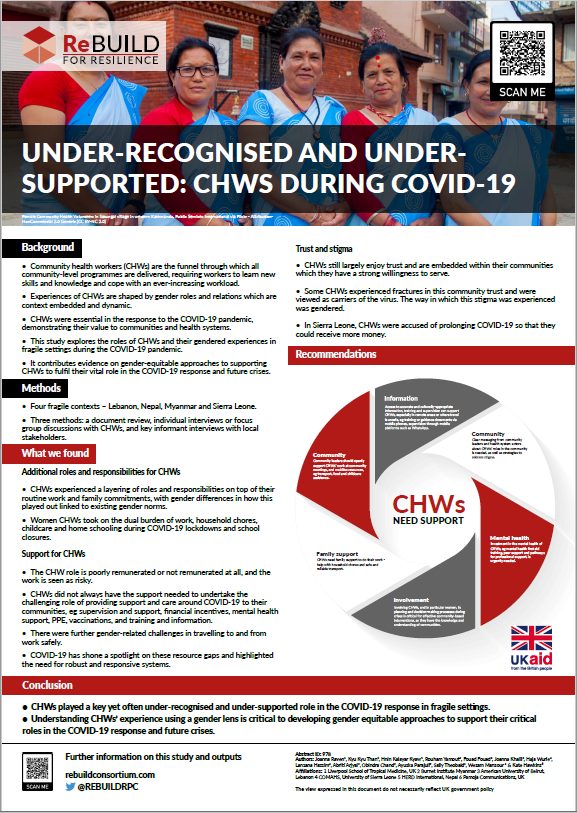Under-recognised and under-supported: CHWs during COVID-19

This poster – which you can view here – was presented at HSR2022 by Joanna Raven of Liverpool School of Tropical Medicine.
It is based on the study The gendered experience of close-to-community providers in fragile and shock-prone settings: implications for policy and practice during and post COVID-19.
This poster demonstrates how CHWs played a key yet often under-recognised and under-supported role in the COVID-19 response in fragile settings. It also shows how understanding CHWs’ experience using a gender lens is critical to developing gender equitable approaches to support their critical roles in the COVID-19 response and future crises.